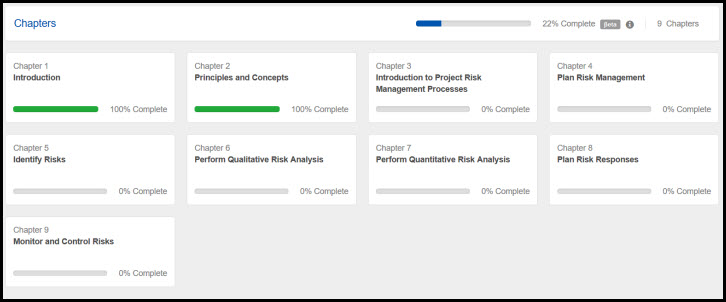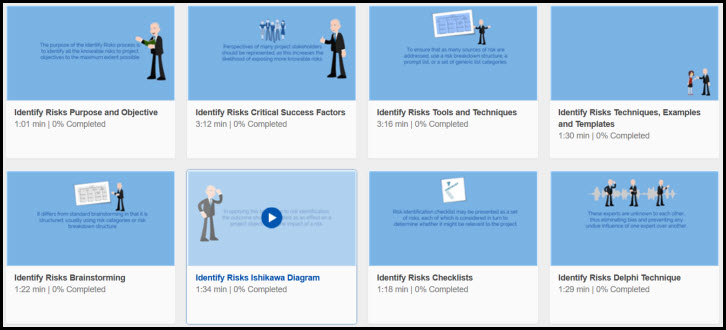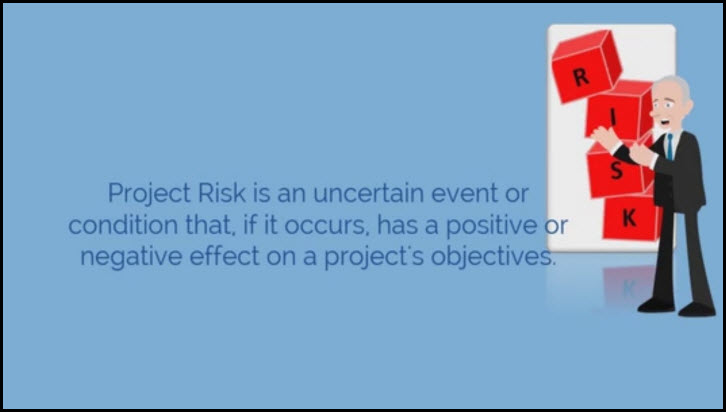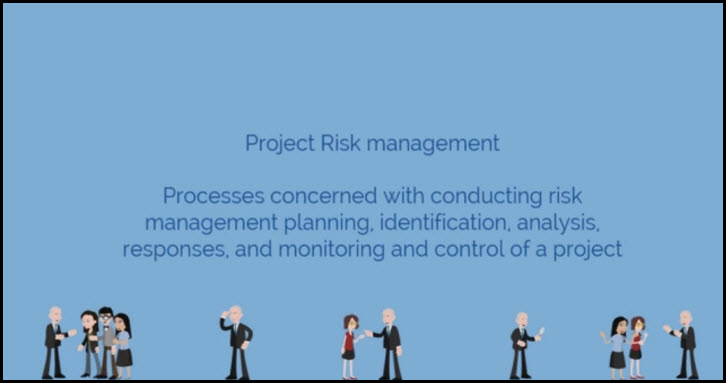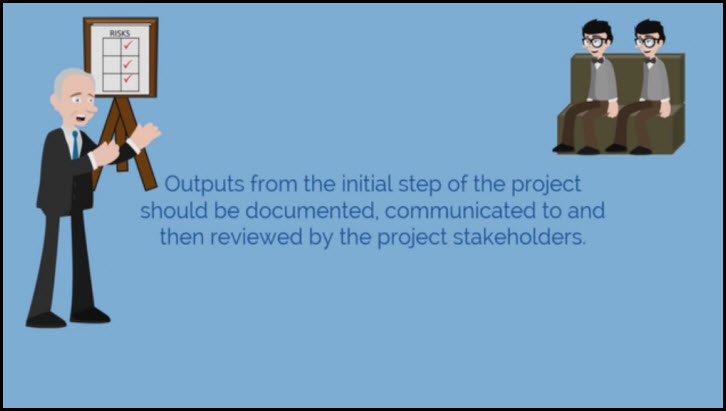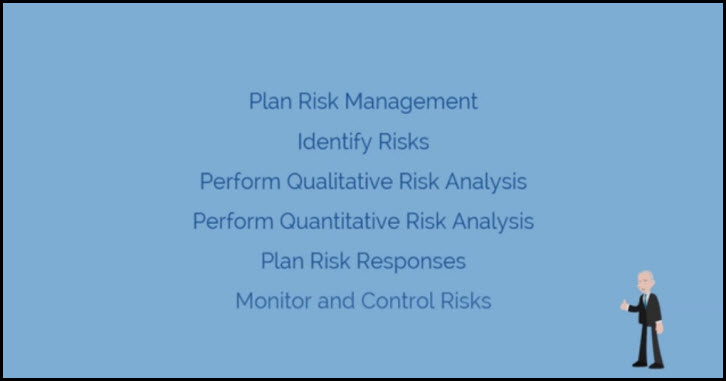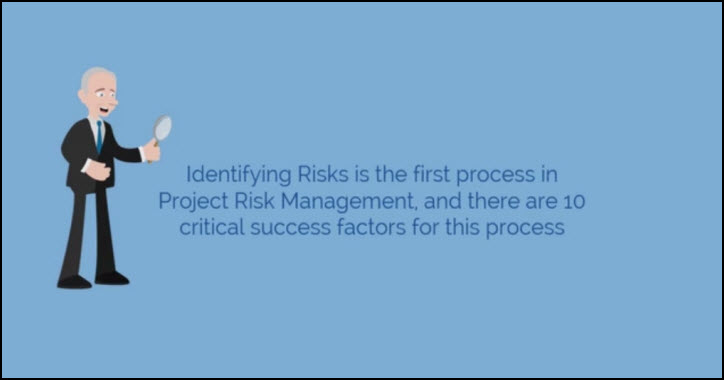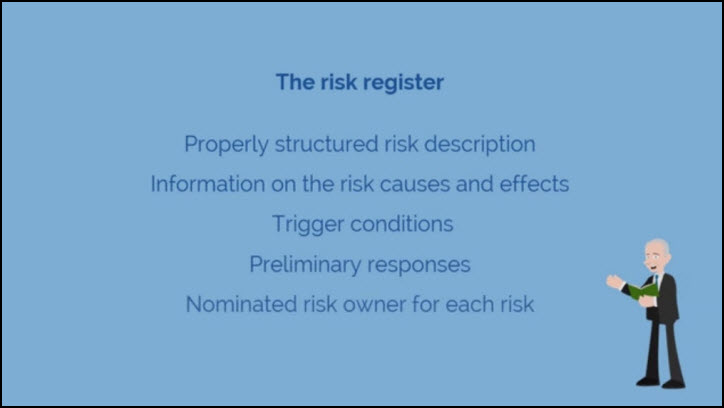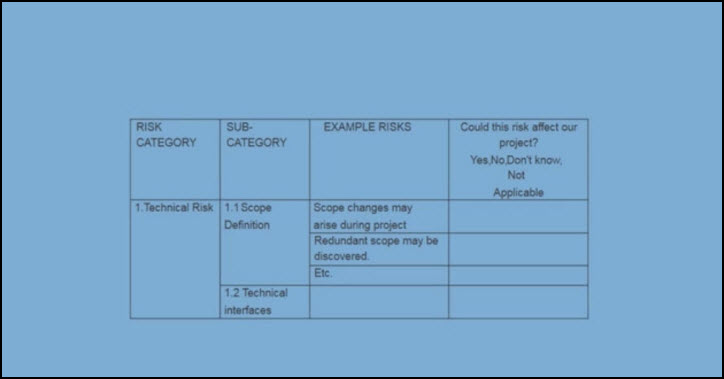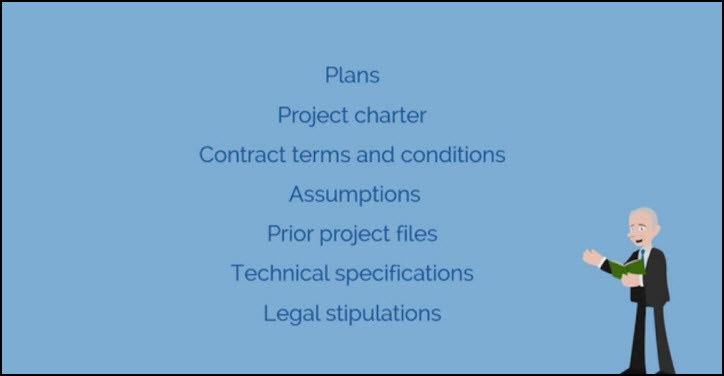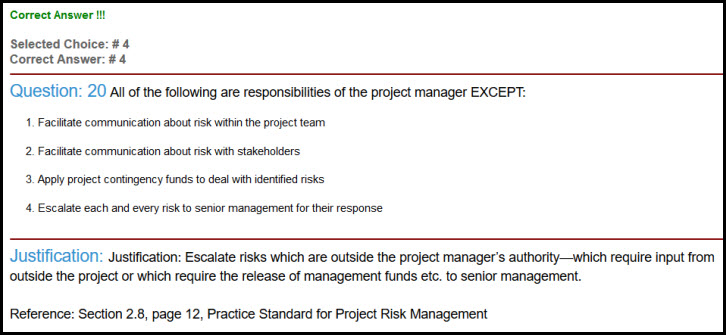परिचालन जोखिम प्रबंधन प्रमाणन
एक महत्वपूर्ण कौशल के रूप में, आप विभिन्न प्रकार की परियोजनाओं के लिए जोखिम प्रबंधन लागू कर सकते हैं। डाउनसाइज़िंग, समेकन, सिकुड़ते बजट, बढ़ते तकनीकी परिष्कार और कम विकास के समय के युग में, जोखिम प्रबंधन कौशल आपको प्रमुख परियोजना जोखिमों की योजना बनाने में मदद करने के लिए मूल्यवान अंतर्दृष्टि प्रदान करते हैं। जोखिम प्रबंधन आपको देता है... हमारे पूरी तरह से ऑनलाइन पाठ्यक्रम के माध्यम से यह जोखिम प्रबंधन प्रमाणन प्राप्त करें। . 20 PMI PDU स्वीकृत क्रेडिट भी अर्जित करें! इस उत्पाद को खरीदने के लिए, बस विवरण पृष्ठ के अंत में 'अभी खरीदें' बटन पर क्लिक करें। अधिक जानने के लिए नीचे स्क्रॉल करें...
- शिपिंग:
और जाने
As an important skill, you can apply risk management to a wide variety of projects. In an era of downsizing, consolidation, shrinking budgets, increasing technological sophistication, and shorter development times, risk management skills provide you valuable insight to help you plan for key project risks. Risk Management lets you...
- realize potential risk issues
- analyze these issues
- develop, implement, and monitor plans to address the issues long before the issues surface and prevent adverse project cost, performance, and schedule.
If you're looking to sharpen your or your employees’ project risk management skills and showcase their specialized expertise in risk management, we created this course for them.
ISO 9001:2015 and other standards based on ISO 9001 now require Risk Management. This course helps you gain the knowledge to meet these requirements.
To make sure you get the best content, several PMPs and experts in the field of project risk management developed and evaluated this Risk Management Certification course. This course aligns with the concepts of Risk Management as defined by Project Management Institute (PMI®) and is a great way to prepare for PMI Risk Management Professional (PMI-RMP®) exam. Upon successful completion of the course, you get 20 PMI Approved PDUs (Activity # is RMSTUD).
Benefits
- All On-Line, study at your own pace.
- Study through the web, a mobile application or both.
- Add Risk Management Certification to your resume
- Learn from the Leaders
- Low cost / High value
- High-quality courseware
- Experienced faculty
- Successful training program
- PMI approved PDU
RISK Management Certification Includes
- 75 Videos (1 to 5 minutes each)
- 9 Chapters each with chapter tests. Tests include full explanation of answers.
- 9 Study Guides
- Terminology flash cards
- Track your progress as you complete the course.
- Two practice tests for certification.
- Downloadable Certification after completion of the certification test.
- 90 days to complete (If necessary, we can grant more time).
Comprehensive Course Structure
Our comprehensive Risk Management Certification course covers all the concepts required to be a Risk Management specialist.
The course offers comprehensive study guides for all the chapters with examples that explain and illustrate the concepts for the benefit of the student. The course explains the concepts in simple language using time-tested and proven training methodology, making it easy to understand even the complex topics.
The Risk Management classroom course is divided into the following nine chapters.
- Introduction
- Principles and Concepts
- Introduction to Project Risk Management Processes
- Plan Risk Management
- Identify Risks
- Perform Qualitative Risk Analysis
- Perform Quantitative Risk Analysis
- Plan Risk Responses
- Monitor and Control Risks
Classroom Daily Schedule
The Risk Management classroom course is divided into the following 9 chapters. Each day is approximately 4 hours long.
Day 1
Principles and Concepts
- Definition of Project Risk
- Individual Risks and Overall Project Risk
- Stakeholder Risk Attitudes
- Iterative Process
- Communication
- Responsibility for Project Risk Management
- Project Manager’s Role for Project Risk Management.
- Some Important Terms and Concepts.
Introduction to Project Risk Management Processes
- Project Risk Management and Project Management.
- Project Risk Management Processes.
- Some Important Terms and Concepts.
Plan Risk Management
- Purpose and Objectives of the Plan Risk Management Process
- Critical Success Factors for the Plan Risk Management Process
- Tools and Techniques for the Plan Risk Management Process
- Documenting the Results of the Plan Risk Management Process
- Techniques and Templates for Risk Management Planning
- Some Important Terms and Concepts
Identify Risks
- Purpose and Objectives of the Identify Risks Process.
- Critical Success Factors for the Identify Risks Process.
- Tools and Techniques for the Identify Risks Process.
- Documenting the Results of the Identify Risks Process.
- Techniques, Examples and Templates for Identify Risks.
- Some Important Terms and Concepts.
Day 2
Perform Qualitative Risk Analysis
- Purpose and Objective of the Perform Qualitative Risk Analysis.
- Critical Success Factors for Perform Qualitative Risk Analysis Process.
- Tools and Techniques for the Perform Qualitative Risk Analysis Process.
- Documentation of Results.
- Techniques.
- Some Important Terms and Concepts.
Perform Quantitative Risk Analysis
- Purpose and Objectives of the Perform Quantitative Risk Analysis.
- Critical Success Factors for the Perform Quantitative Risk Analysis Process.
- Tools and Techniques for the Perform Quantitative Risk Analysis Process.
- Documenting the Results of Quantitative Risk Analysis Process Techniques.
- Some Important Terms and Concepts.
Plan Risk Responses
- Purpose and Objectives of the Plan Risk Responses Process
- Critical Success Factors for the Plan Risk Responses Process
- Tools and Techniques for the Plan Risk Responses Process
- Documenting the Results of the Plan Risk Response Process
- Techniques, Examples, and Templates for the Plan Risk Responses process
- Some Important Terms and Concepts
Monitor and Control Risks
- Purpose and Objective of the Monitor and Control Risks process
- Critical Success Factors for the Monitor and Control Risks Process
- Tools and Techniques for the Monitor and Control Risks Process
- Documenting the Results of the Monitor and Control Risks Process
- Techniques, Examples, and Templates for the Monitor and Control Risks process
- Some Important Terms and Concepts
Course Examples
